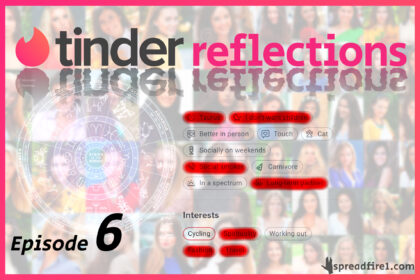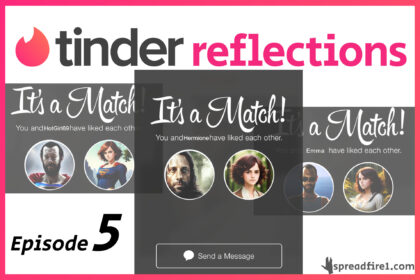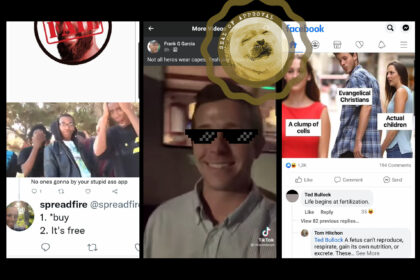|
Blogcast - listen to the audio version
|
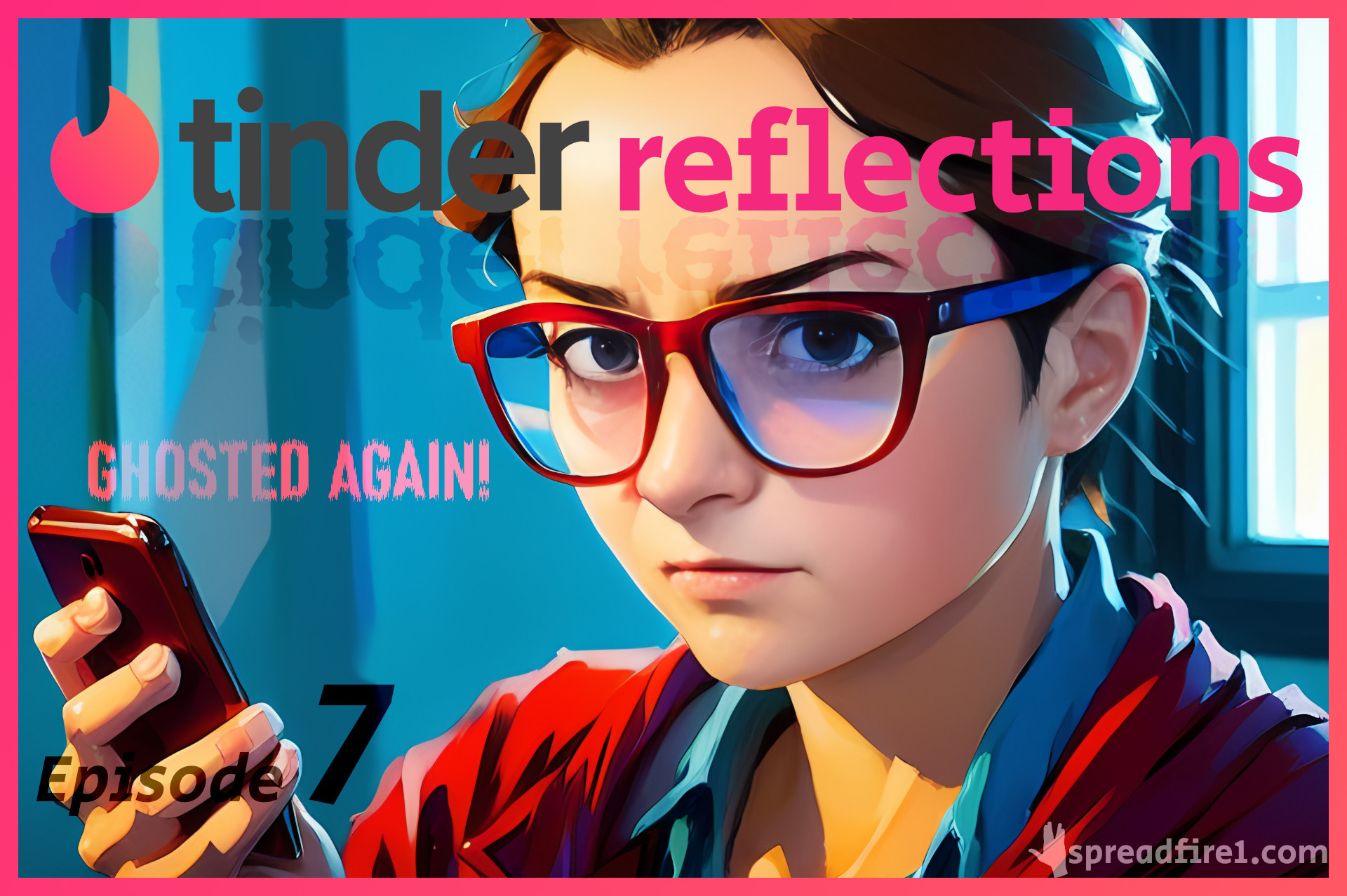
I met her on Tinder. We wanted to meet quickly without messaging back and forth for a long time. She canceled the first date on short notice, which I was okay with. Anything can happen.
On the second date, it worked out. We went for a walk and talked for 3 hours. Not a “soulmate,” but still on the same wavelength with many similarities and emotional connection, I thought. After a looooong hug, we parted ways.
Next time she wanted to come over and watch a movie and chill. No really, just chill. Not what you think of when reading “Netflix and Chill”. Although more could have happened, possibly. After agreeing on all the details, I sent her this message: “good morning, here’s my address so you know where to go on Tuesday”. She told me she would let me know when she was leaving. I even baked a cake and was full of anticipation.
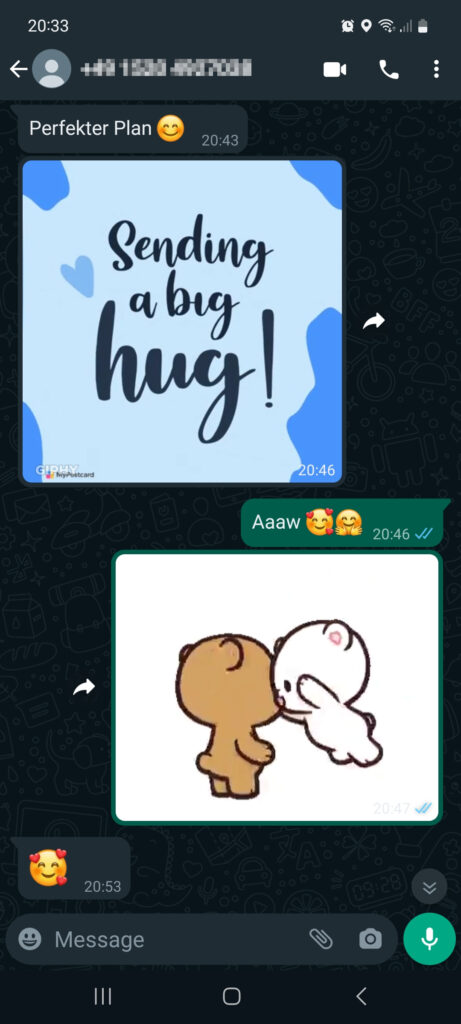
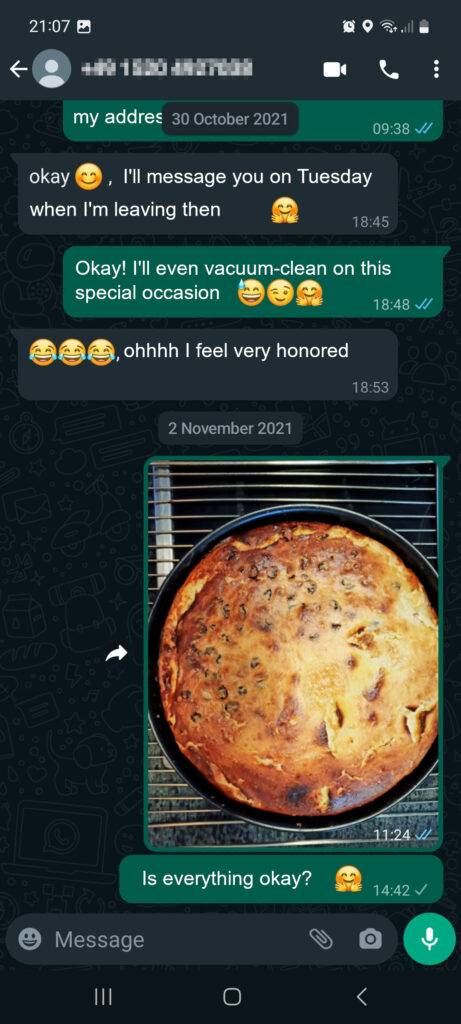
She didn’t show up. Then radio silence… At first, I was worried that something might have happened on the way. Then I noticed that I had been blocked on WhatsApp and on my two Instagram accounts, and unmatched on Tinder. I’m not quick to judge and imagined possible scenarios. Was it something I said or wrote? Was she not doing well mentally (we talked about our depression)? The cake really didn’t look that bad, did it?
Whatever the reason, it would have been more humane to be honest and direct than to leave me in the dark. I’ve been ghosted before, but it still doesn’t feel good.
Looking back, it was good because it freed me up to meet someone great. Plus my family was happy about the cake.
ChatGPT, what are possible reasons for “ghosting” in dating culture?
In dating culture, “ghosting” refers to the practice of ending a relationship or ending communication with someone without any explanation or closure. There are a variety of reasons why someone might ghost another person. Some possible reasons include:
- Fear of conflict or confrontation: Some people may find it easier to simply disappear rather than to have an uncomfortable conversation about why they want to end things.
- Fear of rejection: If a person is not feeling as invested in the relationship as the other person, they may ghost in order to avoid the possibility of being rejected themselves.
- Loss of interest: Sometimes, people may lose interest in the person they were dating and ghost them rather than telling them the truth.
- Feeling overwhelmed: Some people may ghost if they are feeling overwhelmed by the intensity of the relationship or the other person’s feelings.
- Being busy or preoccupied: A person might not have time or energy to deal with the relationship due to personal or professional reasons.
- Insecurity: Some people might ghost as a way to protect themselves from feeling rejected or hurt.
It’s worth noting that ghosting is generally considered to be a disrespectful and unkind way to end a relationship, and it can be hurtful for the person who is ghosted.
How to cope with getting ghosted?
Being ghosted can be hurtful and confusing, and it can be difficult to know how to cope with the feelings of rejection and abandonment. Here are a few suggestions for how to cope with getting ghosted:
- Allow yourself to feel your feelings: It’s normal to feel upset, hurt, and confused when someone ghosts you. Allow yourself to process these emotions and don’t suppress them.
- Reframe the situation: Try to see the situation from a different perspective. Perhaps the person who ghosted you was going through something difficult in their own life and couldn’t handle the relationship.
- Talk to someone about it: Talking about what happened with a friend or therapist can help you process your feelings and gain a new perspective.
- Practice self-care: Take care of yourself during this difficult time by doing things that make you feel good, like exercise, spending time with friends, or pursuing hobbies.
- Remind yourself that it’s not about you: Ghosting is not a reflection of your worth as a person. It’s important to remember that it’s not about you, but rather about the other person’s inability to communicate effectively.
- Learn from the experience: Take the time to reflect on what you learned from the experience and how you can apply that to future relationships.
- Move on: You deserve to be in a relationship with someone who values and respects you. Don’t waste your time trying to figure out why the person ghosted you, focus on finding someone who treats you well.
It’s important to remember that it’s not uncommon to be ghosted and it’s not a reflection of you as a person, but it’s a behavior that the other person has chosen to do. Give yourself time to process the feelings and try to focus on the positive aspects of your life.
This article is part of my new series, Tinder Reflections, where I reflect on my past experiences with the dating platform, love, life, and stuff. Personal, autobiographical, relatable, philosophical, intimate, vulnerable, critical. Mindful enough to be aware and honest enough to admit.
Guest-starring: the omnipresent, much-knowing, widely loved A.I., ChatGPT.
It’s gonna be a banger! Both literally and figuratively.
Subscribe to my newsletter to get notified when I release the next episode.




